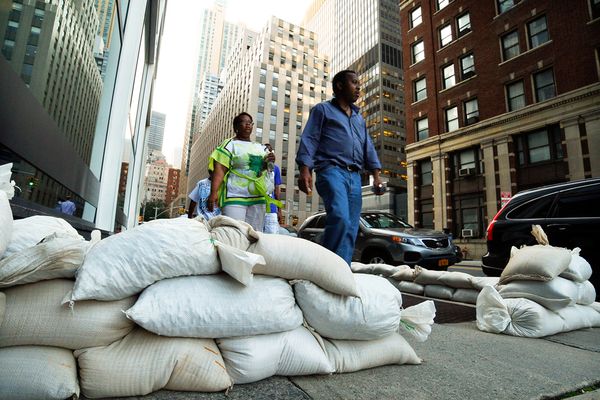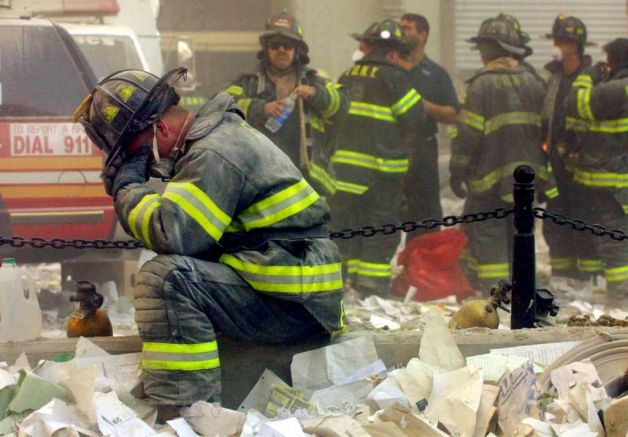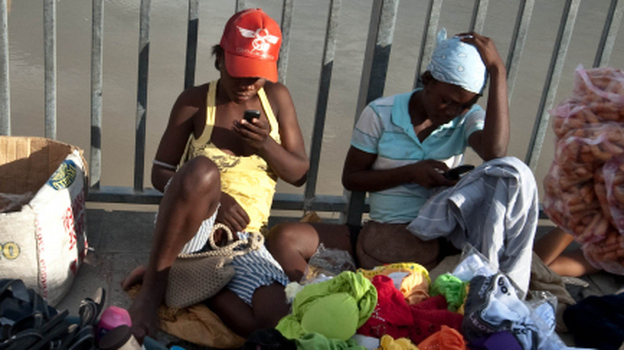
Photograph by Eduardo Munoz, Reuters
AP Business Writers - by Jonathan Fahey and Peter Svensson - August 28, 2011
NEW YORK (AP) -- Below the streets of New York City, a network of pipes, cables and tunnels up to 200 feet deep transports power, gas, water, Internet traffic, trains, sewage and more. When Hurricane Irene hit the city Sunday, this underground network was largely protected from major damage.
On the island of Manhattan, only a handful of its 1.6 million residents lost power. And roughly 50,000 households in the city's outer boroughs of the Bronx, Brooklyn, Queens and Staten Island lost power.
Elsewhere, Irene left millions of East Coast residents without power, as winds knocked trees into above-ground power lines.
But while the city's buried infrastructure is safe from wind, it is vulnerable to flooding. Some experts say the city simply got lucky that the flooding wasn't more severe. The subway system is especially at risk, which is why transportation officials preemptively shut it down.








Recent Comments